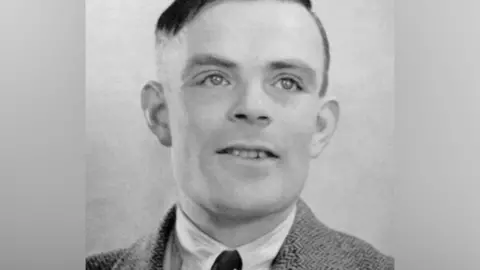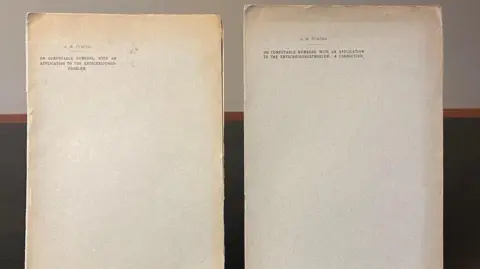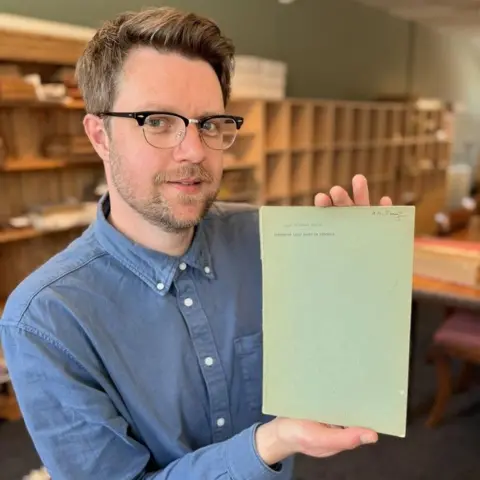Alan Turing papers saved from shredder to be sold
 Getty Images
Getty ImagesPapers written by World War Two codebreaker Alan Turing are to go up for auction after they were found in a loft and almost shredded.
The 1930s collection, which included a copy of Turing's PhD dissertation, is expected to make tens of thousands of pounds when it goes under the hammer in Lichfield, Staffordshire, on 17 June.
Turing, considered by many as the father of modern computing, played a key role in WW2 in helping to break the German Enigma codes at Bletchley Park.
Rare Book Auctions, which is handling the sale, said the papers were originally gifted to Turing's friend and fellow mathematician Norman Routledge.
After Mr Routledge died in 2013, the documents were found at his home in Bermondsey, London, and taken away by one of his sisters.
One of Mr Routledge's nieces, who has not been named, said they were untouched for years until the sister moved into a care home.
Her daughters found the collection and "considered shredding everything" before they checked with the nieces and nephews.
 Rare Book Auctions
Rare Book AuctionsThe niece said the family were "bowled over by the valuations and level of enthusiasm" after the collection was inspected by Rare Book Auctions.
The papers were called offprints and were used as a method of correspondence between scholars.
The PhD dissertation from 1938 or 1939, called Systems of Logic Based on Ordinals, is signed by Turing and has been valued at £40,000 to £60,000.
Another paper called On Computable Numbers from 1936 or 37, which introduced the world to the idea of a "universal computing machine", was also valued at £40,000 to £60,000.
The collection also includes a letter from Turing's mother Ethel, dated 16 May 1956, in which she wrote about the manner of her son's death and requests for her to write a biography.
 Rare Book Auctions
Rare Book AuctionsJim Spencer, director of Rare Book Auctions, described the collection as "the most important archive" he had ever handled.
"These seemingly plain papers - perfectly preserved in the muted colours of their unadorned, academic wrappers - represent the foundations of computer science and modern digital computing," he added.
Before WW2 Turing invented the idea of a machine that could decode and perform any set of instructions and a decade later would design an electronic computer, capable of running any program.
However, he was prosecuted for homosexual acts in 1952 and was chemically castrated before he died from cyanide poisoning in 1954, with an inquest concluding suicide.
He received a posthumous royal pardon for his conviction in 2013.
Follow BBC Stoke & Staffordshire on BBC Sounds, Facebook, X and Instagram.
